|
Section
0401 |
|
|
February
2012 (Volume
62 - Issue 2) |
|
Our
objective: To increase awareness,
interest, and involvement in Section activities and quality-related
subjects. |
| 10 - Sustaining Members | ||
| 17 - Feedback/Advertising Rates | ||
| 6 - Voice Of The Customer | 12 -ASQ News |
1.
Next
Event
Date Wednesday, February 15, 2012 Time
6:00 PM Place Sheraton Montreal Airport Hotel Enablers
for Quality Management in Supply Chains
Dr. ANJALI AWASTHI ASQ Senior Member Assistant Professor Concordia Institute for Information Systems Engineering (CIISE) **************************************
Quality Management in Supply Chains is vital to ensure profitability, remain competitive in modern markets and retain customer loyalty. In this talk, Dr. Awasthi will present the different enablers for quality management in supply chains and investigate their relationships through Delphi technique and Interpretive Structural Modeling framework. The results of the study will determine the driving power of different enablers in assuring quality management and their dependence vis-à-vis other enablers. Knowledge of this structured analysis of enablers will allow decision makers to proactively manage and channel efforts in the right direction, to make quality management initiatives a success in their organizations. Reduced cost of quality downstream in the supply chain will be an additional advantage. The talk will be supported through real life examples from industry and academia.
|
2.
Ad
/
Publicité
|
||||||||||||||||||||||
|
Dr. Anjali Awasthi is Assistant Professor at the Concordia Institute for Information Systems Engineering (CIISE) in Concordia University, Montreal, and a Senior Member of ASQ. At Concordia, she is involved in teaching several courses related to quality management at graduate and undergraduate levels, such as Quality Assurance in Supply Chain Management, Total Quality Methodologies in Engineering, Advanced Quality Control, Quality Control and Reliability, and Software Testing and Validation. Her areas of research are Quality assurance in supply chains, Sustainable city logistics solutions, IT & decision making, and Industrial applications of Operations Research. She has several years of industrial experience and is the author of various research articles in scientific journals and conferences in these areas. ****************************************************
Cost:
ASQ
Members ($40),
Non-Members ($50)
Supper
and
Parking are included.
Bring
your business cards and be ready to
network. To
register for any event or for more information on events please
contact:
Sukhvinder Jutla Tel: (450) 647-8092 E-mail: Sukhvinder.Jutla@pwc.ca or Mitchell Daudier Tel: (450) 647-7830 E-mail: treasurer@asqmontreal.qc.ca 3. The Editor's Corner
As you will read a full review of our January event below by Francois Pageau, I figured I would use my corner here this month to show some pictures I took at the event. In all my years of attending ASQ events, this was the first one which was a panel discussion. In my opinion, it was great success. Unlike the usual format of "1 speaker, 1 set of opinions", here you had 5 different speakers, each with his/her own Quality stories to tell. This made for very good listening and a thoroughly enjoyable evening. Hopefully, we can plan for more panel events in the future. If you have any ideas of topics which you feel would be good for this type of format, please let me know. |
|||||||||||||||||||||||
4.
A Word
from
your Section Chair
An ASQ meeting where all Canadian sections were invited to send one or two representatives was held in Toronto in November 2011. Both Montreal sections sent representatives. William (Bill) Wilson, our Vice-Chair, represented Section 401. We learned from others sections and were able to help other sections as well by exchanging our experience. It turns out that Montreal’s sections are doing very well. We can count on great volunteers to help us achieve our mission. Our events are attended by loyal members and new members each time. Our LinkedIn group is growing and the information shared on it is reflecting the vitality of the Quality community in Québec. Thanks to all of you and please continue to participate in our section’s activity. A Canadian Quality Summit and Mining Gala will take place in June 2012 in Saskatoon, Saskatchewan. You can have more information by clicking here. Our Golf Tournament will be in early July 2012. You will have more information in the next Newsletter. Please, contact me if you would like to sponsor this event. |
|||||||||||||||||||||||
5.
Had
You Come
to the
Last Event
By
Francois Pageau, P. Stat.,
ASQ Senior
Member, Program
Committee
Member
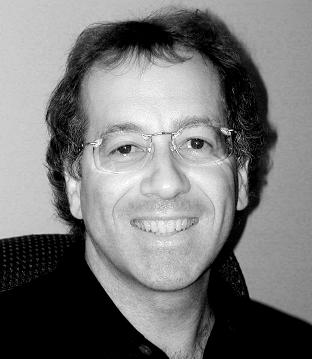 Had you come . . . Importance of Cultural Settings for Continuous Improvements in Quality Our
January 25th event
was titled “Importance of Cultural Settings for Continuous
Improvements in Quality”. The format of this event was a
panel
discussion, a formula that I enjoy as an attendee, but have not seen
often used in ASQ events. The panel was formed of five experienced
Quality practitioners that have been intensively involved dealing with
organizations with facilities located in other countries: Diego
Lythgoe, Holly Hong Ping Zhao, Khaled Khattab, Louise Gauthier, and
Sukhvinder Singh Jutla.
The panel discussion was moderated by Raymond Dyer, Voice of the Customer Chair. Ray first started by explaining the format and by laying down the ground rules for the evening. He made it clear that the Speakers’ comments were on their own behalf and do not necessarily correspond to ASQ’s views. Even though the definition of culture was intended to be taken in its regional/geographical sense, Ray invited the panelists to comment as well on organizational cultures as they saw fit. The tone was very respectful of all cultural backgrounds, yet some anecdotes were quite funny to hear. Each speaker told us about their respective background and how they got involved working overseas in different cultural settings (see Speakers’ bios in the January 2012 issue of the Newsletter). Holly was the first panelist to speak, briefing us on her work experience in China and in the USA. She has been involved in process certification, Quality and Six Sigma. She immediately pointed out one striking difference between the Chinese work culture and the North American work culture: acknowledgment of authority is a given in China while here it may at times be a challenge. As a number of quality and continuous improvement initiatives are based on top-down deployment, one can see that trust in the “chain of command” is important. Sukhvinder then introduced himself, emphasizing his “mixed-up” background – from Indian heritage, born and raised in Kenya, and educated in the UK. His 35 years working in Canada brought him to deal with partners from many different countries, assignments that carried their share of pleasures and frustrations. Khaled, originally from Egypt, has worked 17 years in Quality, with experience in the public (Government of Dubai) and private sectors (Shell), among other organizations. Louise made her introductory remarks highlighting her varied background that preceded her involvement in Quality. Through audits and continuous improvement assignments, she worked with contract manufacturers from Asia, Central America, and the Middle-East. Lastly, Diego described how the various continuous improvement activities he led brought him to deal with suppliers in North and South America, Europe and Southeast Asia. Ray then asked the panelists to provide their own answer to Question #1: "Can you give us examples of differences you've seen/experienced in terms of Quality maturity (knowledge, commitment, etc.) between different countries/regions/cultures?" Diego remarked that newer companies push quality initiatives harder than the not-so new ones. Among his personal interactions abroad, he described people in Kuala Lumpur as “forward-looking people” as opposed to some North American attitudes more rooted in traditions. For example, he is amazed that some companies, from aerospace to medical devices, still measure yield using percentage metrics, which he finds “so 1982!”. Louise’s experience is mostly within an original design manufacturer (ODM) business model. She recounted witnessing people counting parts outside of the building in an Indian production facility in 2007, a situation clearly not aligned with her company’s expectations. She made a point though, of mentioning that the first factor that explains peoples' attitudes and behaviors as they relate to Quality is perhaps the company’s culture and not necessarily the regional culture. One might find completely different Quality maturity levels within the same country, depending on what company he’s dealing with. Khaled praised the Dubai’s Leader as being extremely visionary. He was asked to develop a Quality management and operational excellence program for the Government of Dubai using a model recognized internationally. The chosen model was the European equivalent of the Malcolm-Baldrige model, namely the EFQM model (formerly known as the European Foundation for Quality Management). Khaled also described his experience at Shell, and especially what he called “Shell Life”: an internal program that flies new recruits to the Netherlands (Shell’s headquarters) for them to receive intensive “brainwashing” sessions on Quality, Health, Safety, and Environment (QHSE). According to Khaled, the company even sends teams to inspect their employee’s homes to make sure that they live in a safe place! Sukhvinder focused on his experiences in Singapore, China and the Philippines. The work culture there is very hierarchical, and there is a flowdown of expectations regarding Quality. He has found that there is a palpable willingness to improve, probably stemming from economic necessity. He told us that it is very common over there to send a team of observers from the company to accompany an external auditor, and those observers take notes. All in all, Sukhvinder is of the opinion that the ability to deliver quality in these countries is equivalent to here at home. Holly spoke about the diligence and strong work habits that characterize the Chinese work culture. Having been a Six Sigma trainer for Pratt and Whitney in China, she has seen firsthand the motivation of the trainees to really learn. People are anxious to learn and improve, and this motivation does not only come from the company, but from the person itself. Of course, top management commitment has a lot of impact because of the inherent cultural respect for authority. She thinks that it is perhaps easier to engage people in Quality endeavors in China than in North America, because here people require to “see the results first” to be convinced. Holly also reminded us that Chinese people usually prefer to think a lot before asking questions, a behavior that should not be misinterpreted for a lack of cooperation or the intention to hide facts. Ray then invited the panelists to tackle Question #2: "Would you act differently to encourage/secure Continuous Improvement between different countries/regions/cultures? If so, why?" Khaled considers that knowledge of the culture is essential. Since resistance to change is human, any asset that can facilitate change is useful, and awareness of the cultural intricacies of the workplace represents such an asset. This is especially true in Middle Eastern factories, where you must literally eat with the people and be good at telling jokes in order to be an effective change agent. In North American companies though, it might not be as essential because people have a higher degree of autonomy. Louise also thinks that knowledge of culture is important. For example, while auditing overseas she observed that sometimes people seemed afraid to be caught doing something incorrect. On another occasion, the interviewee refused to answer her because she was a woman. Had she been aware of such cultural traits ahead of her visit to those facilities, she would have prepared differently. Diego definitely recommends learning the “cultural language”. Unfortunately, it is rare that Westerners try to mingle with the locals while working abroad – from what he observed in Malaysia. Holly thinks that it is important to be aware of cultural differences. Such awareness would ease the communications and avoid misperceptions when interacting with people from different cultural background. Among the five panelists, Sukhvinder posed as the outlier, responding “No…ideally not” to Question #2. His position is that you should not have to act differently. He suggests showing genuine respect for the local culture, and avoiding any arrogance. From there, “things should start flowing down”. Sukhvinder’s point is that the desire to improve can be considered a universal human feature. Hence, he recommends taking a more brainstorming attitude with our interlocutor rather than a dominant, knows-everything one. Some anecdotes on the misinterpretations of various body languages were also mentioned by the panelists, to the amusement of the audience. In the closing remarks, a common theme was that respect is a key aspect in dealing with other cultures. It was also pointed out that even if some behaviors can be explained by the cultural heritage which might greatly differ from the North American culture, the same behaviors can also be observed here in our own backyard even if it doesn’t stem from same motives. An interesting point raised at the end of the session, not specifically related to the event’s topic but worth mentioning anyhow: a recent trend is that Continuous Improvement starts being driven by information technologies, a result of the “Quality beyond the shop floor” initiative. The Quality community is not well prepared for this. Perhaps this could be the topic of a future Event? As a social anthropology drop-out (maths eventually shaved my beard), I was very pleased to learn from the different situations described by the speakers. I think the audience left the room with a feeling of satisfaction and appreciation of other cultures, also realizing that we all travel the same Quality journey. A last word on the panel discussion format: I am in favor of repeating such a formula when the event topic draws very much on people’s experiences, as it was clearly the case for our January 25th event. Thanks to all our five Speakers: Diego, Holly, Khaled, Louise, and Sukhvinder for sharing so generously their experience and time. Thank you to Raymond for organizing this panel and for serving as moderator, a role that you performed greatly. Eric Stern, CQA, senior member, publicity co-chair, developmental coach and consultant at Expertech CMSC, expressing his own opinions. ericst@iseffective.com For
networking with local
quality professionals explore these groups: http://tech.groups.yahoo.com/group/Quality_Montreal/ http://www.linkedin.com/groups?gid=90170
|
|||||||||||||||||||||||
6. Voice of the Customer
Editor's Note: Raymond unfortunately is unable to provide Voice of the Customer news this month. Stay tuned for Ray's return in the March Newsletter! 7. The
Interview Corner
By Kostya
Polinkevych, CSQE, ASQ Senior MemberEditor's
Note: We unfortunately do not have a new interview for you this month.
Stay tuned to the March Newsletter for our next installment.
8.
2011-12 Planned Events
Date, time, and location will be confirmed as we progress into the year. Most events are planned for Wednesday evenings and are held at the Sheraton Montreal Airport Hotel. Watch the Newsletter and our web site for further details.
Date Event Enablers in Quality Management in
Supply Chains |
|||||||||||||||||||||||
|
To register for any event of for more information on events please contact: Sukhvinder Jutla at (450) 647-8092 or e-mail at Sukhvinder.Jutla@pwc.ca.
|
|||||||||||||||||||||||
9.
Welcome
to our New Members
December
2011
Chantal Baril Philippe Belanger Robert Glass Sylvain Tetreault Syed Md Rokib Uddin |
|||||||||||||||||||||||
10.
Sustaining
Members
ASQ Montreal Section thanks our Sustaining (Site) Members: |
|||||||||||||||||||||||
11. Other
ASQ
Events
|
|||||||||||||||||||||||
12. ASQ News2012
World Conference Keynotes Baldrige Is Here To Stay 2012
ASQ Calendar Available at No Charge! New
Interest Group Combines Quality and Athletics |
|||||||||||||||||||||||
13.
ASQ
Montreal Section Education Program 2011-2012
By
David
Tozer,
Ph.D., ASQ CQE and SSBB, Education & Audit Chair Having ASQ certification gives you an edge in the market and can significantly increase your income. ASQ Certification often leads to higher paying employment. The money invested in education and certification increases chances of finding employment quickly in the down sizing environment we live in. People who take the section sponsored refresher courses, and spend at least twice as much time as spent in the classroom on self study, have an 80%, or better, chance of passing the examination on the first attempt. Certified Quality Engineer Topics include: quality concepts, cost of quality, human resources, team formation and group dynamics, inspection, metrology, sampling, reliability, quality standards, quality audit, statistics, design of experiments, process improvement, liability, and modern management methods for improving quality. Certified Six Sigma Black Belt Topics include: quality concepts, cost of quality, enterprise wide deployment, business process management, project management, team formation and group dynamics, define, measure, analyze, improve, control, lean enterprise, statistics, design of experiments, and design for six sigma. Certified Six Sigma Green Belt Topics include: quality concepts, cost of quality, enterprise wide deployment, business process management, project management, team formation and group dynamics, define, measure, analyze, improve, control, and statistics. Certified Manager of Quality/Organizational Excellence Topics include: quality concepts, quality planning, customer focus, quality standards, project management, cost of quality, team formation and group dynamics, human resources and improvement.
Certified
Quality Auditor Topics
include: quality concepts,
team
formation and group dynamics, management responsibility, audit
objectives, audit preparation, audit conduct, audit reporting,
sampling, and basic statistics.
Certified Quality Inspector Topics include: quality concepts, team formation and group dynamics, geometry, metrology, reading drawings, mechanical processes, statistical process control, inspection, and sampling. Calendar and Registration Form Questions? In house courses, etc.: David Tozer: (514) 694-2830, davidtozer@qualitiqua.com
|
|||||||||||||||||||||||
14.
Executive
Committee Meetings & Officers
Section Executive
Committee
(Leadership Team) Meetings are held at different locations, starting at
6 PM. The next regular meeting is tentatively scheduled for : March
7, 2012 Consult the List of Your Executive
for
2011-12 here |
|||||||||||||||||||||||
15. Upgrade Your Membership to Senior MemberGAIN RECOGNITION . . . ADVANCE TO SENIOR MEMBERWhy not demonstrate your professional growth and accomplishments in the quality profession by becoming an ASQ Senior Member. You will receive recognition from ASQ, additional benefits, and the opportunity of being nominated to the grade of Fellow Member, if you qualify. Go onto your profile at www.asq.org to complete the application on-line. You can also download the application from www.asq.org. Or you may phone 1-800-248-1946 and request that an application be mailed to you. Apply today either by phone or on-line and get the recognition and benefits you deserve. 16.
Unemployed Member Dues
Unemployed ASQ members receive a discount on their membership dues based on consecutive years of membership.
Eligibility Criteria
Benefits
NOTE: The following links require that you be logged into your account before you try to activate them. Download the 2011/2012 Unemployment
Program
Application (July 2011–June 2012 Membership Groups) (DOC, 101 KB) |
|||||||||||||||||||||||
17.
Feedback
Please send us your comments about the ASQ Montreal Section 0401 E-Newsletter (topics, layout, length, etc.). Do you want to contribute an article (English or French) or a good idea? Contact us by e-mail. |
|
||||||||||||||||||||||
Pass
it on
We invite you to forward this Newsletter to friends and colleagues who may be interested. |
|||||||||||||||||||||||
|
The
ASQ
Montreal
Section 0401 Newsletter is prepared by and published for its members. How to
Opt Out. This
e-mail
is being sent in the course of normal Montreal Section
business
to the e-mail address of record. We are not responsible for forwarded
e-mails. If you no longer wish to receive e-mail communications from
the Montreal Section (your section) of ASQ, please visit your ASQ
account to unsubscribe or
reply to this message, indicating Opt
Out in the
e-mail body
and in the title. |
|||||||||||||||||||||||

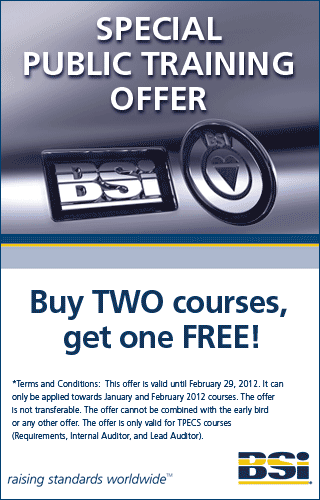
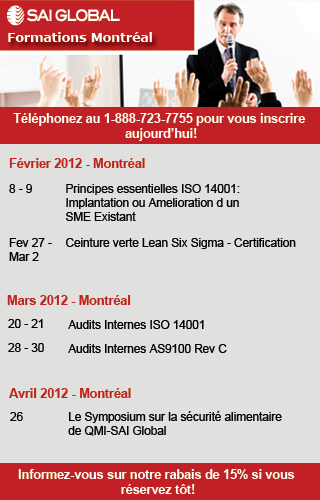
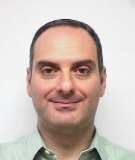
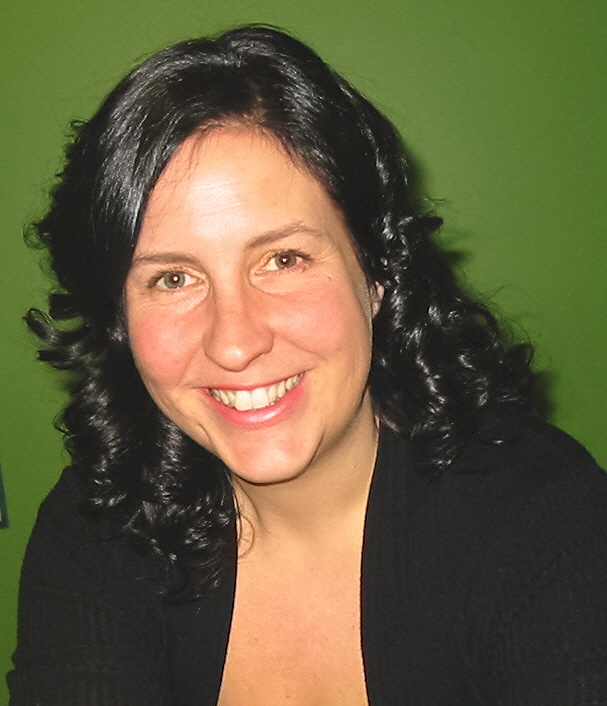
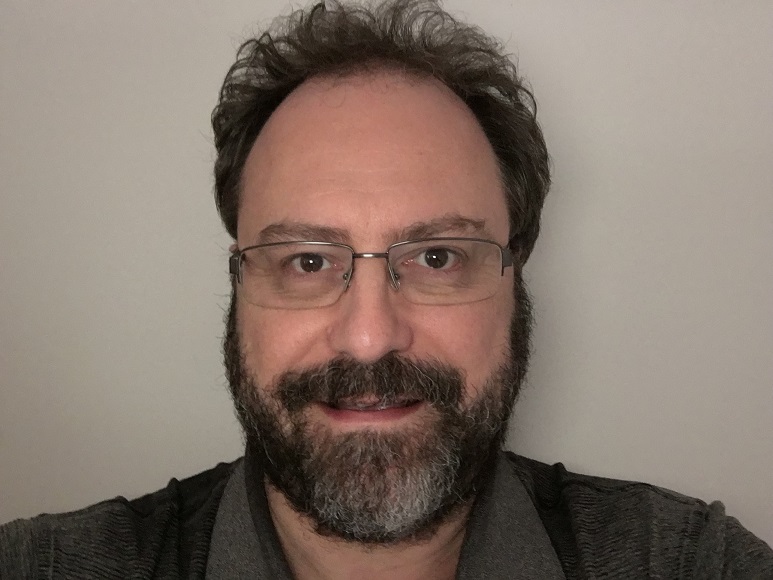
 By
Sukhvinder S. Jutla,
2011-12 Program
Chair
By
Sukhvinder S. Jutla,
2011-12 Program
Chair